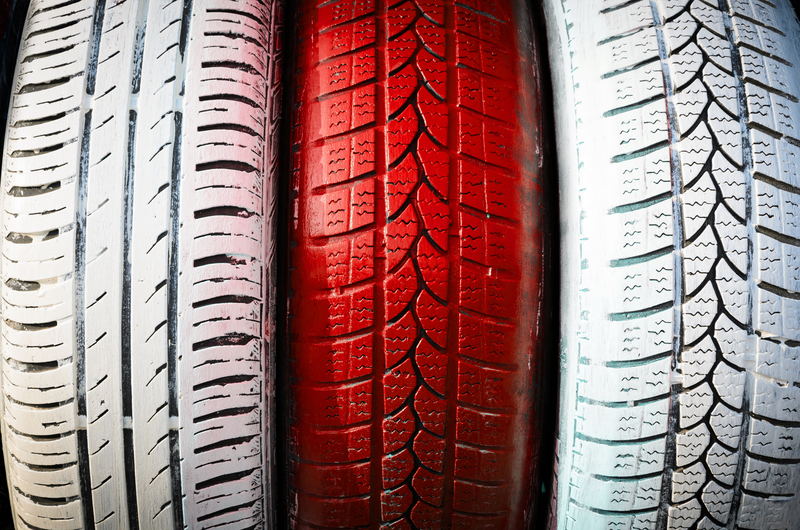Smart Solutions for Cutting Costs on Bulky Waste Disposal
Are hefty disposal fees and inconvenient pickups making bulky waste removal a headache? Discover budget-friendly, eco-conscious ways to manage your large-item junk and reduce bulky waste disposal costs, all while optimizing your cleanup process.
Understanding Bulky Waste Disposal: Why Efficiency Matters
Bulky waste--think furniture, mattresses, household appliances, yard debris, and renovation scraps--often goes beyond the capacity of standard trash pickup. Improper disposal not only damages the environment but can also strain personal and public budgets. Finding smart bulky waste disposal solutions is crucial for homeowners, businesses, and communities looking to save money and act responsibly.
What is Bulky Waste?
Bulky waste refers to large and heavy items that can't easily be disposed of through regular curbside trash collection. These typically include:
- Furniture: Sofas, beds, dressers, tables, and chairs
- Appliances: Refrigerators, washing machines, microwaves, ovens
- Mattresses and Box Springs
- Yard Waste: Branches, stumps, large bags of leaves
- Construction Debris: Drywall, old carpets, tiles, lumber
- Electronic Waste (E-Waste): TVs, computers, printers
Managing bulky waste the smart way isn't just about saving money--it's about sustainability, safety, and community well-being.

Top Smart Solutions for Lowering Bulky Waste Disposal Costs
With landfill tipping fees and municipal pickup charges on the rise, individuals and businesses are seeking innovative bulky waste disposal solutions. Here's a comprehensive look at cost-effective options you can use right away.
1. Schedule Municipal Bulky Waste Collection Wisely
Most cities and towns offer bulky item collection, often for free or at discounted rates, several times a year. Here's how to maximize this service:
- Check your local calendar: Many municipalities publish a bulky waste pickup schedule online. Plan your cleanouts to coincide and avoid paying private haulers.
- Bundle items: Accumulate items until the next collection, ensuring you stay within collection limits per household.
- Follow regulations: Adhere to item size, weight, and packaging restrictions. Fees soar if crews must reject or leave behind improper items.
2. Reuse, Donate, and Repurpose Before Disposing
One person's trash is another's treasure! Before tossing out bulky items, consider their potential. Reusing and repurposing can save you on disposal costs, all while supporting the environment and your local community.
- Donation: Charities and non-profits (like Goodwill, Habitat for Humanity ReStores, and local shelters) often accept gently used furniture and appliances at no cost, and may even offer free pickup.
- Sell or Give Away: Platforms like Facebook Marketplace, Craigslist, Freecycle, and local "Buy Nothing" groups are great for offloading items and sparing landfill space.
- Upcycle: Transform old dressers into benches, convert wooden pallets into garden planters, or turn discarded tires into functional art.
Tip: Always clean items and check quality standards before donating to ensure smooth acceptance.
3. Rent a Dumpster or Share with Neighbors for Bulk Projects
Renting a dumpster can be a savvy solution--especially for renovations or big moves--but costs can add up. To minimize expenses:
- Pool Resources: Organize a neighborhood cleanout and split the cost of a roll-off dumpster. Many providers offer 10, 20, or 30-yard dumpsters sized for community projects.
- Compare Rates: Shop around for the best value. Inquire about weight limits and overage fees before booking.
- Avoid Prohibited Items: Ensure no banned materials (like certain electronics or hazardous waste) are included, as these can trigger hefty penalties.
4. Leverage Bulky Waste Recycling Centers
Many municipalities operate recycling and waste transfer stations where residents can drop off large items for a fraction of disposal costs. This is ideal for:
- Metal appliances (often recycled for free or a nominal fee)
- Mattresses, carpets, electronics, and yard waste (fees often less than commercial disposal)
Be sure to check hours, residency requirements, and acceptable materials to optimize your visit.
5. Try On-Demand Junk Removal Apps
In today's digital age, smart bulky waste removal is only a click away. Multiple on-demand apps (e.g., LoadUp, Got Junk?, TaskRabbit) connect you with gig workers or pros who haul bulky waste at competitive, transparent rates.
- Compare Quotes: Get several bids before booking.
- Check for Promotions or Referral Discounts: These often bring extra savings.
- Book Only What You Need: Many apps let you choose specific items--no minimums required.
6. Embrace Community or Corporate Bulk Pickup Events
Homeowner associations, apartment complexes, and some local businesses hold seasonal bulk pickup or drop-off events. These are often free to residents or included in your HOA fees.
Pro Tip: Stay plugged into local newsletters or community groups to find upcoming disposal events.
7. Deconstruct and Downsizing to Cut Pickup Fees
Pickup and landfill fees often factor in the size and weight of items. Disassembling large furniture or breaking down debris into smaller parts may allow for free curbside pickup or lower dump charges.
- Remove Bed Frames from Mattresses
- Take Apart Modular Couches or Shelving Units
- Cut Carpet or Drywall into Smaller Sections
Result: Reduced bulk often equals reduced cost!
8. DIY Transportation: Save on Hauling Fees
If you have access to a truck, trailer, or sturdy car:
- Self-haul to local drop-off sites: Most charge by the load, not by item, making it a cost-effective option if you have multiple bulky items.
- Borrow or rent equipment: Truck rental is often cheaper than full-service junk removal, especially if you split the cost with friends or neighbors.
Strategic Ways to Reduce Bulky Waste Generation
The smartest way to minimize bulky waste disposal fees is to prevent bulky waste in the first place! Here are proactive strategies for both households and businesses.
Buy Durable, Timeless, and Modular Products
Investing in quality furniture and appliances pays off in the long run. Durable, modular, or repairable goods last longer, are easier to resell, and are less likely to end up in the landfill.
- Choose multi-purpose or modular designs that can be reconfigured and reused.
- Consider secondhand: Pre-owned items extend product life while reducing environmental impact.
- Repair before replacing: Many items can be fixed for less than new replacement and disposal fees.
Adopt a Circular Economy Mindset
When making purchasing or building decisions, think about product lifecycle. Ask yourself:
- Can this item be easily recycled or broken down when it's no longer useful?
- Is there a secondhand market for this product?
- Can it be reused or repurposed by others?
Plan Ahead for Renovations and Moving
Whether remodeling a home or office, or prepping for a move, strategic planning helps reduce disposal costs.
- Work with contractors who recycle construction and demolition debris to minimize landfill fees.
- Sort materials on-site: Separate wood, metal, carpet, and electronics for proper recycling.
- Sell or donate usable fixtures, cabinets, or appliances prior to demolition or move-out.
Innovative Technologies in Affordable Bulky Waste Removal
As cities grow, so do the challenges of managing large, hard-to-dispose of waste. The good news? Innovation is making cost-effective bulky waste disposal smarter and more accessible.
IoT and Data Analytics for Efficient Pickup Routing
Some municipalities now use smart sensors and AI to track the amount and type of bulky waste, optimizing pickup routes and reducing fuel/time expenses. Efficient routing lowers collection costs, which benefits residents through lower fees and improved timeliness.
E-Waste Recycling Programs
Bulky electronic waste (TVs, computers, printers) often carries extra fees for landfill disposal. Many cities now partner with e-waste recyclers that safely recover valuable materials at free or reduced rates to consumers.
- Check for city or county e-waste drop-off days or permanent collection centers.
- Retailers like Best Buy or Staples often accept old electronics for free recycling.
Online Scheduling and Smart Notifications
New digital scheduling tools let you arrange pickups, receive reminders, or check if items are allowed for curbside collection--all from your phone. Missed pickups due to miscommunication can result in added costs, so embrace these time-saving apps.
Environmental Impacts: Why Sustainable Bulky Waste Solutions Matter
Every time bulky waste heads to landfill, it contributes to environmental degradation--methane emissions, chemical leaching, resource loss, and space scarcity. Prioritizing sustainable, budget-friendly bulky waste removal doesn't just protect your wallet; it also preserves our planet.
- Recycling recovers valuable materials and energy, reducing the need for virgin resources.
- Donating extends the life of products, minimizes demand for new consumption, and supports those in need.
- Efficient pickups reduce traffic, carbon emissions, and public costs.

FAQ: Cost-Saving Bulky Waste Disposal Tips
Q: What's the cheapest way to get rid of furniture or a mattress?
A: Check for free local collection days, donate to nearby charities (which sometimes offer pickup), or use online platforms to give away items. If possible, self-haul to a recycling center to pay only minimal fees.
Q: Can businesses save money on commercial bulky waste removal?
A: Yes. Contracting with specialized bulk waste haulers, negotiating group rates, or participating in city-sponsored cleanup events can drastically reduce costs. Recycling office equipment or donating surplus items also cuts expenses.
Q: Is dumpster rental always cheaper than junk removal services?
A: Not necessarily. Dumpsters are ideal for large, multi-item cleanouts where you handle the loading. If you have just a few items, junk removal services or on-demand hauling may be more affordable.
Key Takeaways: Smarter, Cheaper Bulky Waste Disposal For All
- Plan ahead and coordinate with municipal or community collections for maximum savings on bulky waste removal costs.
- Reuse, donate, and recycle bulky items whenever possible to save money--and help the environment.
- Take advantage of app-based, on-demand removal services for convenience and competitive pricing.
- Break down or disassemble items to stay under size limits and avoid extra disposal fees.
- Stay informed about local sustainable disposal options, including recycling centers and e-waste events.
- Choose quality, repairable, or modular products to reduce the need for future bulky waste disposal.
Summary: Tackling bulky waste doesn't have to strain your wallet or the environment. By embracing innovative, budget-friendly solutions, you'll streamline your cleanup, save on disposal costs, and make a positive impact in your community. For the smartest, most cost-effective bulky waste disposal, use these practical tips and strategies every time you need to clear out the clutter!